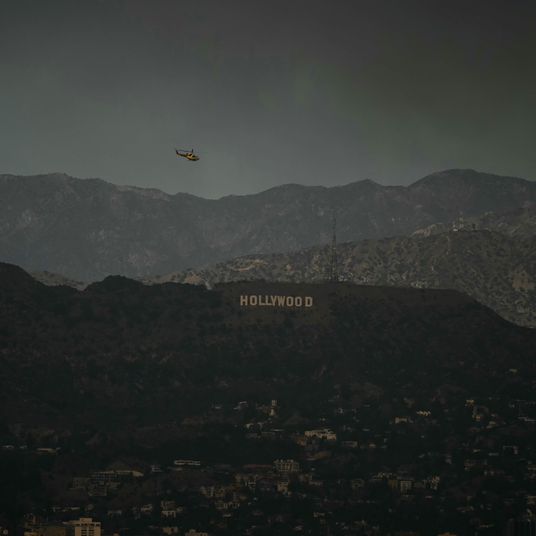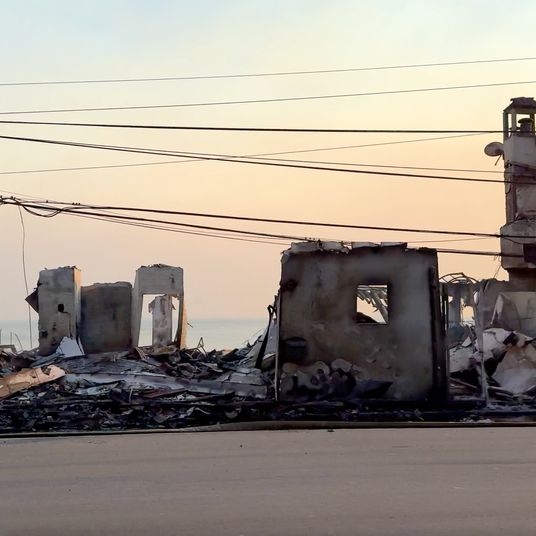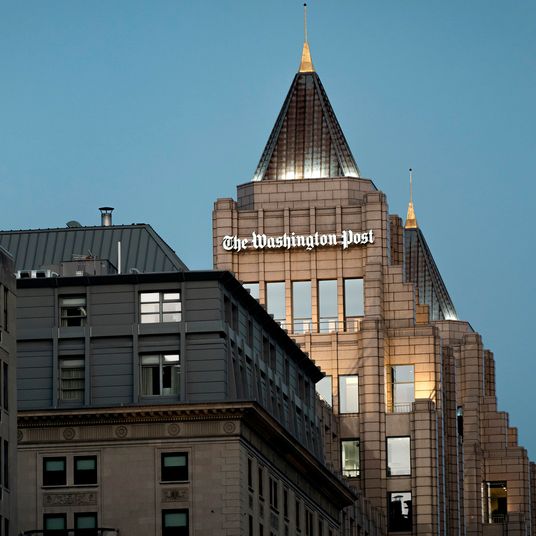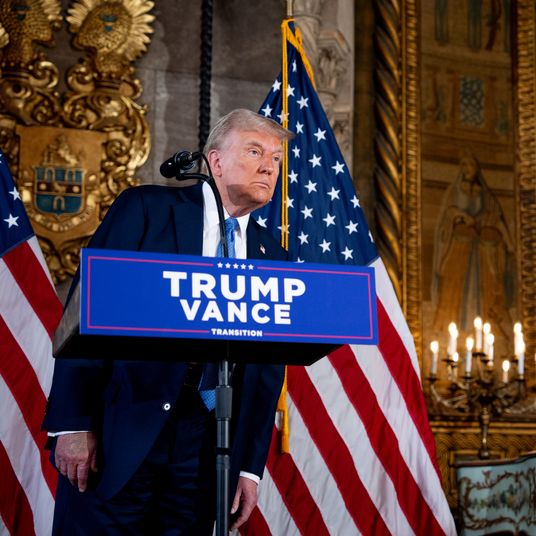Was the triumphant Tuesday-night return of Countdown with Keith Olbermann going to be solemn? At first, it seemed like it — the opening shot was of an empty desk, lights dimmed, as if someone had died. Then, the man himself, in silence and in deadpan slow-motion, peeked in from the left side of the screen and walked onto the stage. He was smirking as he turned to the camera and asked, “Oh, what’s new?”
He thanked viewers for giving him the kind of sympathy normally reserved for “Chilean miners” and then he kicked off the deluge of self-reference: “I read in a couple of places that this had to have been a publicity stunt. This is not a publicity stunt. If I had known this would happen, I would have done this years ago!”
The hour was standard Olbermania: He defended Obama’s use of the word jihad, gleefully tracked intra-Republican congressional battles, and thundered outrage at the banks with special guest Michael Moore. There were just more self-referential asides than usual, Some were muttered (“Just my luck i get a four-day weekend AFTER the World Series is over”), while others, like an odd fake memoir called Suspension Points modeled off of George W. Bush’s new book or montage of all the comedians who made jokes about him, were more elaborate.
The main event, though, was the final monologue. “”I owe you three apologies,” he said. The first one was for causing drama. The second one was for violating a rule against campaign donations he didn’t know about and “probably is not legal.” He defended his decision not to immediately disclose, as he would have been “fundraising passive-aggressively,” making MSNBC just like Fox.
He thanked all his supporters, from Rachel Maddow to conservatives like Jonah Goldberg and BIll Kristol, who “probably treated me better than I would’ve treated them. Rick Sanchez clearly did that. They get my thanks and respect, although they probably wish they didn’t.”
Then, still indefatigable after all the defiant meta-commentary, he made the pivot to something resembling a policy point. “”I gave and you found out and you judged me,” he said about his donations, a small tribute to transparency. “If I had given money through the U.S. Chamber of Commerce you would have never, ever known.”





























